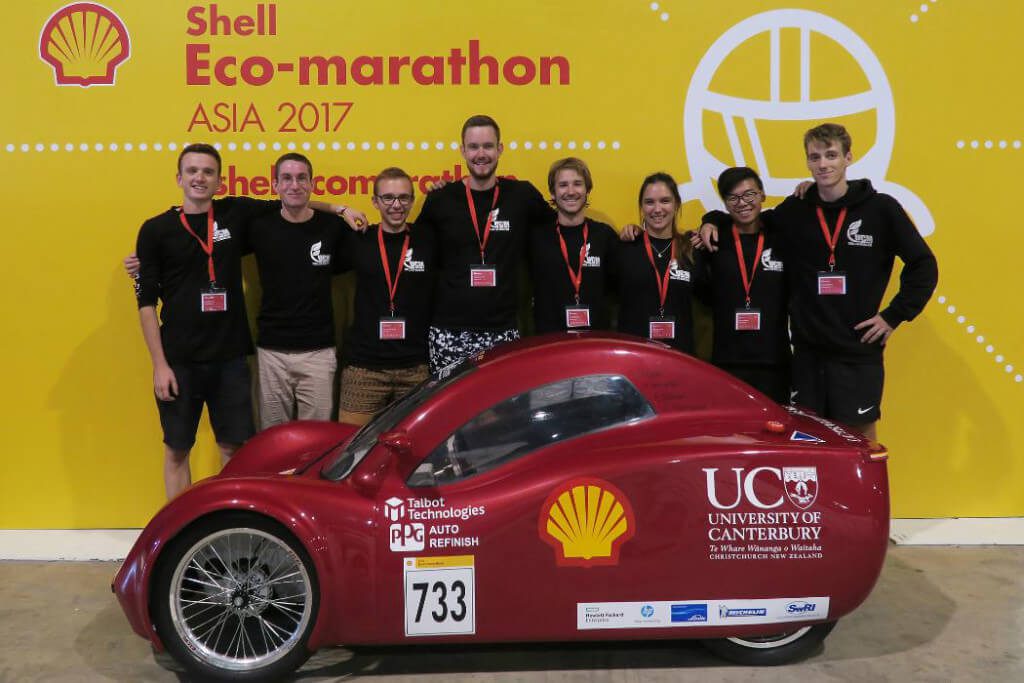Engineering students from the University of Canterbury, New Zealand, have taken to 3D printing a single-piston internal combustion engine from Titanium for their entry in the 2018 Shell Eco-marathon Asia.
Students from the engineering department at the University of Canterbury, New Zealand, have turned to 3D printing to enhance their entry into this year’s Shell Eco-Marathon in Singapore. Their awe-worthy achievement? A remarkably efficient single-piston internal combustion engine expected to achieve 400 kilometers travel per liter of fuel.
The Shell Eco-marathon is dedicated to pushing innovators around the world to utilize fuels in the most efficient way possible. It tasks teams with design and build of ultra-energy-efficient vehicles, which are then tested on the track. Every mile counts as the fuel-sipping cars strive for the furthest possible distance on the least amount of fuel.
In the 2017 edition, the University of Canterbury team (Team EnduroKiwis) debuted, gaining the design accolade for their recyclable vehicle in the process. Placed in the UrbanConcept category, the team’s car was made mostly from low-cost (and reusable) thermoplastics and ran on battery power.
For the 2018 edition of the Singapore Shell Eco-marathon, the team is returning with the same plastic-shelled car, albeit with one major difference. Ditching the battery (responsibly, we should imagine) for a 3D printed Titanium engine running on carbon-neutral bioethanol.
A Lean, Green, Titanium-Print-Powered Machine
The project is clearly something Team EnduroKiwis is proud of — in a release, team leader Robbie Murray explains:
“Over the past year, the team has worked incredibly hard to produce not only a competitive vehicle, but one that demonstrates fresh and forward-thinking ideas. We want to define who we are as New Zealanders, and our drive to create bold and innovative solutions to the problems with which we are faced.”
He continues “Our main focus has been on the development of our own 3D-printed single-cylinder internal combustion engine. The development of our own engine purpose-built for efficiency offered a challenging yet rewarding goal.”
The result of 12-month’s research and development effort, the engine is thought to be the first of its kind. We’ll see just how far it runs when it takes to the track next month. The 2018 Shell Eco-marathon Singapore operates from March 8-11.
Source: Press release
Website: LINK


Schreibe einen Kommentar
Du musst angemeldet sein, um einen Kommentar abzugeben.